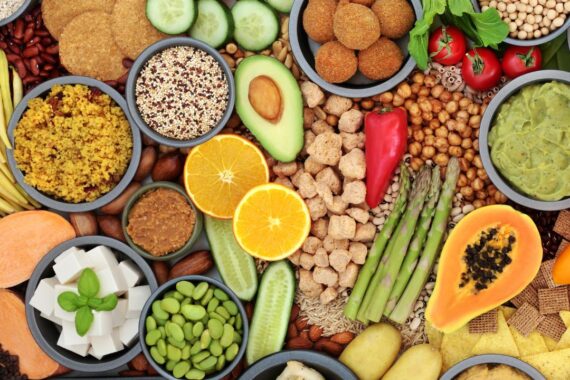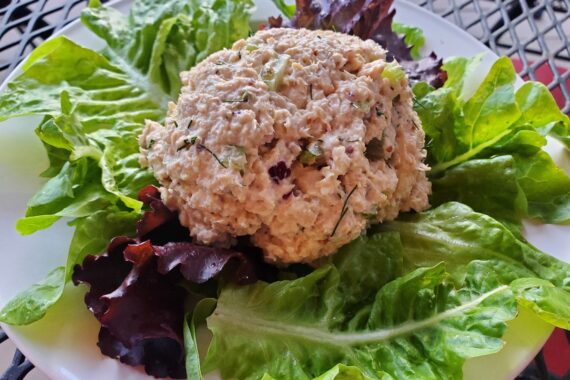
Practice Good Eating Hygiene
Hygiene (noun) – conditions or practices conducive to maintaining health and preventing disease.
Do you consistently find yourself dealing with digestive issues such as indigestion, burping, a bloated belly, gurgling, heaviness along your gut, gassiness and undigested food in your stool? Do you reach for antacids or a gas reliever several times a week? And does all of this seem like normal digestive health to you?
It may be common, but it’s not normal. As a rule, digestion should be smooth and effortless.
You may be surprised to learn that good digestion doesn’t start once you swallow your food. It doesn’t even begin with chewing your food. In fact, good digestion begins in the brain. You may have heard of the gut-brain connection, the two-way communication pathway between what’s happening in your gut and what’s happening in your brain.
Your “Rest and Digest” System
You may also have heard of your sympathetic nervous system and your parasympathetic nervous system.
Your sympathetic nervous system is your “fight, flight or freeze” system that kicks into gear when your body perceives that there is a stressful event occurring. Adrenaline and cortisol are released, keeping the body in a state of heightened reactivity. When your body is in this state, digestion shuts down.
On the other hand, your parasympathetic nervous system is your “rest and digest” system. Your body should be in this state the majority of the time. In this state, you feel safe, relaxed and calm. The body must be in this state to properly digest food. Peristalsis, or the moving of food along the digestive tract, requires that the body be in a parasympathetic state.
Chronic Stress Interferes with Digestion
The problem in our culture is that the pace and pressures (perceived or real) of our lives tend to put us, or keep us, in a chronic sympathetic state. Maybe we’re not running from an immediate life-or-death situation, but we often experience chronic stressors of all sorts that put us in a “sit and stew” state – deadlines, juggling schedules, financial worries, bad news in the media, toxic relationships. This means our bodies are in a sub-optimal state for good digestion before we even think about what our next meal will be.
Back to the gut-brain connection. If your brain is communicating to your gut that there is cause to worry, your gut will respond by slowing down or stopping digestion.
Therefore, it shouldn’t surprise you that the first thing you need to do for good digestion is to get yourself into a “rest and digest” state. This requires creating an environment and mindset in which your brain and gut are communicating reassuring and calming messages to each other.
Of course, this feels easier said than done with the often-frazzled lives we lead. But making this an active practice will eventually lead to a change in your habits and thought-processes, just like committing to an exercise routine or meditation practice. You have to practice it to master it.
Good Eating Hygiene
You may have heard of “sleep hygiene” before, which lays out the steps you can take to make sure you get your best night’s sleep every night. I wrote about it here. But you probably haven’t heard of “eating hygiene” before. Eating hygiene lays out the steps you can take to maximize your ability to properly and fully digest your food.
This is how it works:
Before you eat
- Carve out adequate time for your meals. Plan on at least 15 minutes of dedicated eating time. Make this a priority for all meals.
- Sit down for your meal. Don’t eat standing up. Don’t grab and run. Don’t eat in the car on your way to your next activity.
- Put your phone away. Put your book away. Turn off the TV. No multitasking. Instead, turn on some relaxing music or eat with someone you like.
- Take 5-10 deep slow breaths.
- Look at the meal in front of you. Use your senses to fully experience the meal. Touch the plate or bowl and notice if it’s warm or cold. Smell all of the different foods. Look at the colors and textures of the food.
- Express gratitude for having good food to eat. Express gratitude for everything and everyone who contributed to your meal – the farmers, the animals, the people who got it to the store, the people who prepared it.
While eating
- Eat slowly. Savor each bite. Taste all the different flavors.
- Chew your food completely before swallowing. No, there is no magic number of times to chew, but food should be a paste when you swallow. You shouldn’t be swallowing chunks of anything.
- Swallow each bite before putting more food in your mouth.
- If you’re eating with someone, take time between bites for conversation. Relaxed social connection is beneficial to a relaxed state.
- Stop eating when you feel full, even if there is still food on your plate (put it in the refrigerator for a snack later). You’ll notice that you feel full after eating less food when you practice these steps.
After eating
- If possible, take at least 30 minutes to “rest and digest” after your meal so your body gets a good jump-start on its best digestion. This doesn’t mean continuing to sit at the table. It simply means to keep yourself in a relaxed state, and not putting yourself into a stressful mental or physical situation right after eating (remember the rule about not swimming for an hour after eating?).
You’ll be surprised at how much better your digestion is by simply following these steps. This is the first place I start with clients who tell me they’re experiencing digestive problems. If you still have on-going digestive concerns after putting these steps into place, give me a call. I have solutions for even the most persistent problems.




This has made a huge improvement in my digestion and I’m so grateful for you Therese!
I’m so glad this has helped you, Kate!